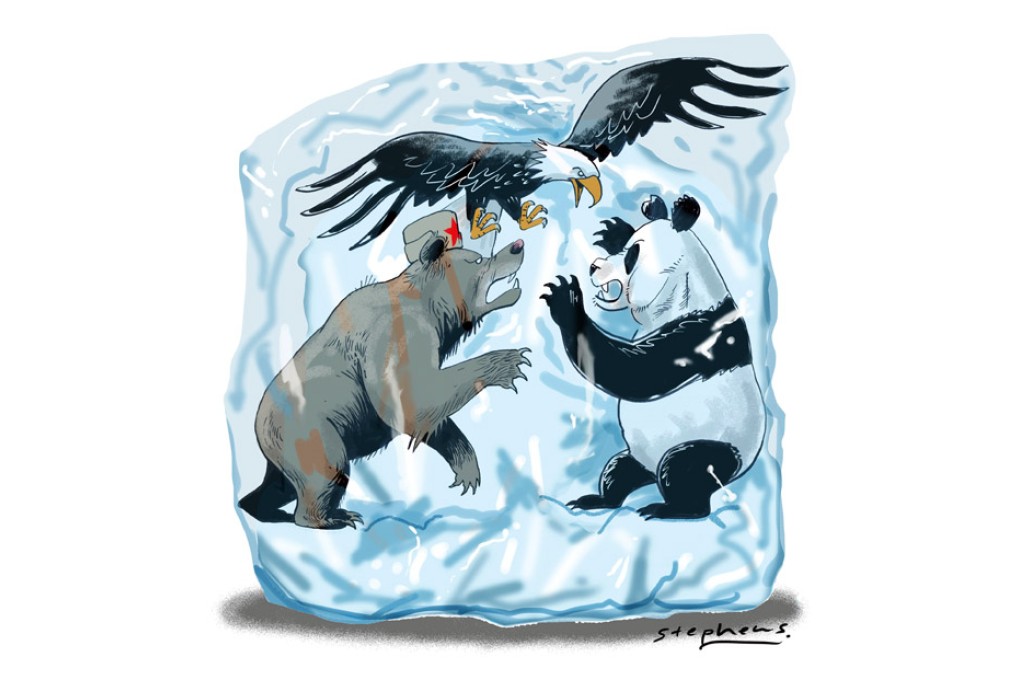The neo-cold-war world
Paul Letters looks at today's tri-polar global order and finds the claims of extensive spying, economic sanctions, diplomatic expulsions and provocative fly-bys all rather familiar

The history books misinform us that the cold war finished around 1990. Last month, Western sanctions on Ukraine provoked Russian Prime Minister Dmitry Medvedev to compare the current situation with the cold war era. The fact that President Vladimir Putin played down such a comparison should make us more inclined to see its validity. In reality, the cold war has never stopped bubbling up (most obviously on the Korean peninsula), and now Russia's imperial resurgence has set new precedents that Beijing could seek to emulate.
We tend to think a cold war requires, specifically, two antagonistic leading powers, like the US and the USSR in the last century. However, when George Orwell coined the term "cold war" in 1945, he had three "great empires" in mind: China would emerge as the third "super state".
The tri-polar nature of the current world order - Russia, China and the US (plus its glued-on allies) - includes some cold war hallmarks yet also adds one or two new motifs. We still have economic sanctions, the retaliatory expulsion of diplomats (such as by the US in response to Russian interference in Ukraine) and perilously close fly-bys (Chinese fighter jets buzzing up to Japanese reconnaissance aircraft) akin to those between the US and USSR in the cold war movie, Top Gun. What is new is the development of cyberspying, aptly topped off with the triangulated defection of Edward Snowden. Now the most widely known spy in history - excluding James Bond - Snowden turned traitor on the US government and, before defecting to Russia, he fled first to China (he would not have chosen Hong Kong were it not in the People's Republic).
Spying may be more of a desk job than it once was, but the fact you can spy from home, thousands of miles from danger, encourages more espionage than could have possibly occurred during the cold war. The US has accused China and Russia of cyberspying - but of course all three are at it in abundance, which is only natural in the circumstances. The rise of communist China threatens US hegemony, and Russia's authoritarian democracy presents an alternative model to any so-called consensus - Washington's or Beijing's.
The current Sino-Russian entente, from the recent gas deal, their common stance over Syria and friendly relations with Iran, through to Beijing's willingness to overlook Moscow's contravention in Ukraine of the core principle upon which Chinese foreign policy is based - that of noninterference - echoes the cold war, or at least its early phase. When China became the USSR's communist kid brother in 1949, it admired its elder sibling's bravery and bravado and disregarded its indiscretions. The brothers later drifted apart. Yet, before China came of age in the 1990s, the USSR's nervous breakdown (1989-91) was a shocking familial embarrassment.
But now the Russian - although not, as some commentators allude to, the Soviet - empire is striking back. Don't be fooled by media suggestions of a rapprochement with Ukraine by Putin: he is the consummate realist leader, adept at the zero-sum game, the rules of which - together with his own KGB career - were forged during the cold war era.